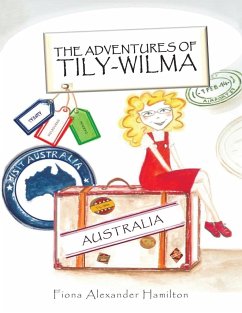Using familiar vocabulary gives confidence in reading, writing and communicating especially in bi-lingual situations. A finalist in The Macmillan Education Award for Innovative Writing in the 2012 British Council's ELTONS AWARDS, Fiona Alexander Hamilton has created a series of bi-lingual stories aimed at encouraging children (and parents) to use their own Latin-based languages. Fiona Alexander Hamilton believes that if vocabulary is strong, grammar flows through naturally by example and practise giving confidence to communicate in another similar language. Having tried and tested this method on school children (in France where she currently resides) , Fiona Alexander Hamilton suggests you too could also try this technique to advance your own child's bi-lingual abilities. This is the first of the series. Quoted from the 2012 judges: "The idea is innovative and offers an interesting and practical strategy to the problem of exposing...other languages whilst maintaining their interest."
Hinweis: Dieser Artikel kann nur an eine deutsche Lieferadresse ausgeliefert werden.
Hinweis: Dieser Artikel kann nur an eine deutsche Lieferadresse ausgeliefert werden.








